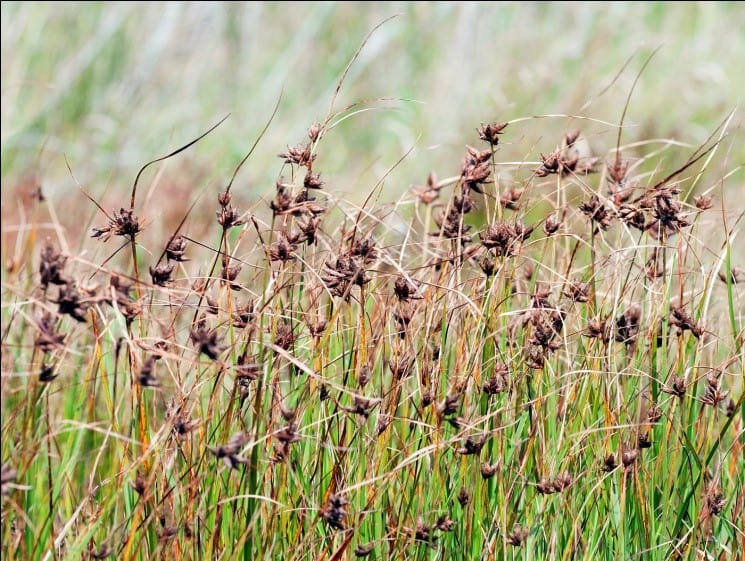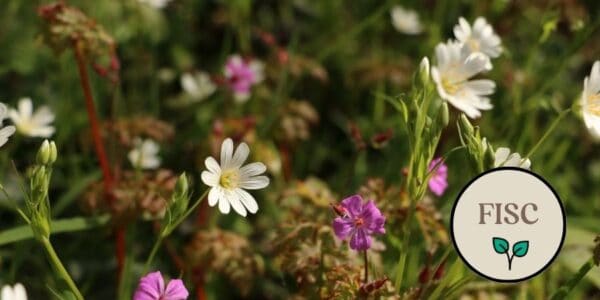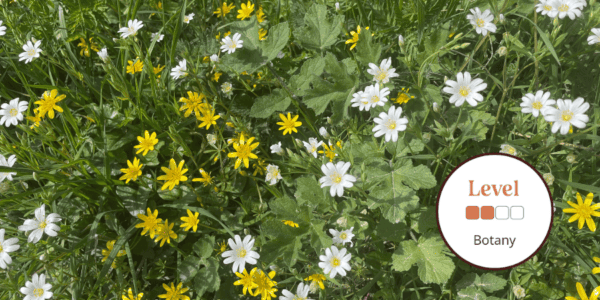This course is now fully booked.
Sign up for our newsletter to hear about the next run of this course
Find similar courses here
Explore the beautiful coastal environment around Dale Fort, Pembrokeshire and investigate the ecology of plants found in this stunning and diverse area.
Coastal habitats contain many beautiful and interesting plant species adapted to some extreme environmental conditions. The ability to identify many of the common species and understand how they are adapted to live in these transitional habitats between the land and sea is a beneficial skill to have.
This introductory course will allow you to identify the variety of plant species found in saltmarsh and sand dune systems. Through a combination of classroom-based sessions and field visits, you will be able to put both habitats into their ecological and successional context and discuss how plants are adapted to these two extreme coastal environments. You will have time to explore your surrounding environment to find some specimens, learning valuable observational and comparative field identification tips.
Be inspired and engaged by the expertise of our specialist tutor and enjoy being surrounded by like-minded individuals to share your interests.
Your course takes place set in a spectacular location high on the cliffs within the Pembrokeshire Coast National Park, South Wales. It is ideally located for coastal studies and for accessing Skomer Island with its renowned resident sea bird populations.
PLEASE NOTE the course fee is for tuition only. There is no accommodation provided with this course. If you would like to book accommodation, lunch and an evening meal at FSC Dale Fort, please email [email protected] FSC Dale Fort, please email [email protected]
Who Should Attend?
Nature enthusiasts, Students, Rangers, Early career consultants and ecologists.
Knowledge Level
Introductory. Level descriptors can be found on the following webpage: Eco-Skills Framework and Course Level Descriptors
Prior Knowledge
No existing knowledge, or experience is needed for this course. Just a willingness to explore and learn.
What will be covered during this course:
-
- Practical experience in the field identification of salt marsh and sand dune plants.
- Opportunities to carry out vegetation surveys in both habitats using a variety of survey techniques.
- Time to explore habitats viewed in their environmental context, with special reference to the process of ecological succession.
By the end of the course, you will be able to:
-
- Describe the plant species found in two different systems
- Identify species and their adaptation to habitats
- How to carry out vegetative surveys
- Share this knowledge with friends, family, and fellow volunteers
The course gives you the opportunity to immerse yourself in a new subject and acquire novel skills. Our fantastic tutor John Archer-Thomson will combine the use of classroom-led learning and outside learning opportunities to give individuals the skills and confidence to learn more about coastal plants.
-
- See the ‘Example Timetable’, ‘What’s Included’ and ‘Before You Attend’ sections below for more information about this course.
- Upon booking you will need to provide individual details of all attendees
- Please email [email protected] if you have any questions
Group Bookings Made Easy
If you have a group of 10 or more individuals wanting to complete one of our courses, our team are available to discuss your options – from discounts to private team courses.
- Discounted rates
- Privately run courses for your group
- Bespoke courses developed specifically for your needs
Email [email protected] to discuss your options!
If we are unable reach viable numbers for this course, we will inform you of the course cancellation 14 days prior to the course run. We would recommend when purchasing accommodation and/or travel you should take out your own insurance.
Tutor: John Archer-Thomson
For many years John Archer-Thomson was Assistant Head of Centre at FSC Dale Fort. He is now working as a freelance coastal ecologist, writer and photographer and runs a number of courses at Dale Fort each year. He co-wrote Rocky Shores, Volume 7 in Bloomsbury’s British Wildlife Collection.Book with Confidence
We understand the difficulties of making plans in the current situation when guidelines continue to change, and insurance conditions are being tightened. In response, we will continue to offer additional flexibility. Find out more here
Example Timetable
Example Timetable
This timetable is subject to change but should give a clear outline of what to expect
- Please arrive in time for the course to start promptly at 10:00am
- The course will end at 5:00pm.
Please note - lunch, refreshments and accommodation are not provided
Day 1
| 10:00am | Introductions and prepare for the field visit |
| 10:45 am | Field visit to salt marshes |
| 1:00pm | Break for lunch - Not included |
| 2:00pm | Continued field time |
| 3:00pm | Classroom session covering
|
| 4:30pm | Classroom plenary and final questions |
| 5:00pm | Finish |
Day 2
| 10:00am | Introduction to the day and prepare for the field session |
| 10:30am | Field visit to salt dunes |
| 1:00pm | Break for lunch - Not included |
| 2:00pm | Continued field time |
| 3:00pm | Classroom session covering:
|
| 4:30pm | Classroom plenary and final questions |
| 5:00pm | Finish |
The field excursions involve walking up to a couple of miles on muddy or sandy terrain; therefore, course participants will need a reasonable degree of physical fitness.
What's Included
What's Included
- Classroom learning covering the theory of the species
- Field excursions to apply new knowledge
- Expert tuition for which the FSC is renowned
- Clear objectives and progression
You can rest assured that the absolute best content from an expert in environmental education will be provided. In choosing an FSC course, you will be joining thousands of people who learn with us each year.
PLEASE NOTE lunch, refreshments and accommodation are not included
Before You Attend
What to Bring
- Lunch and refreshments
- Warm clothing.
- Waterproof jacket and trousers (can be borrowed from Centre).
- Outdoor footwear – sturdy shoes or boots and wellies, these might get wet.
- Day rucksack.
- Warm hat and gloves for inclement weather and sunhat and sun cream for sunny days.
- A hand lens if you have one, we have some at the Centre for you to borrow.
There will be a member of staff with first aid training and access to a first aid kit on site. If you have special medical or access requirements, please let us know as soon as possible so we can plan the course.
Sorry this course has ended



